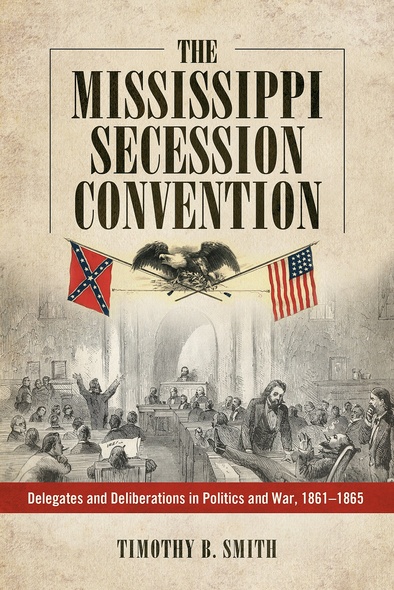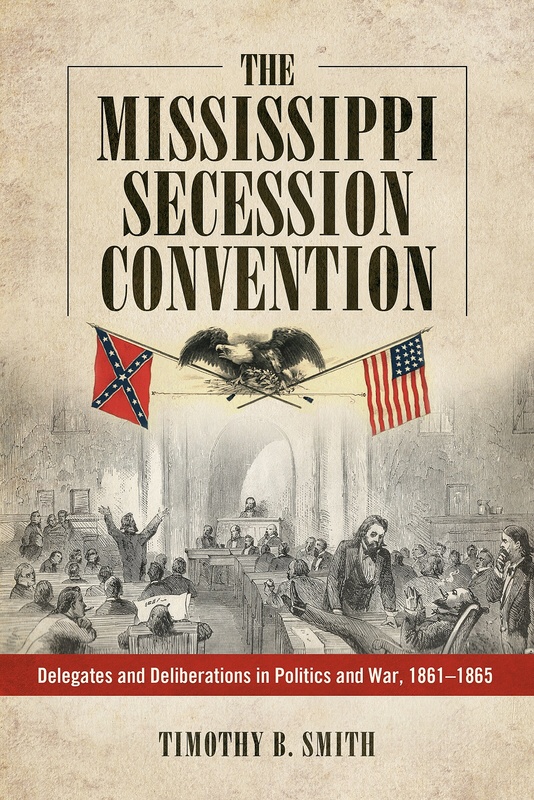
The Mississippi Secession Convention
Delegates and Deliberations in Politics and War, 1861-1865
The Mississippi Secession Convention is the first full treatment of any secession convention to date. Studying the Mississippi convention of 1861 offers insight into how and why southern states seceded and the effects of such a breech. Based largely on primary sources, this book provides a unique insight into the broader secession movement.
There was more to the secession convention than the mere act of leaving the Union, which was done only three days into the deliberations. The rest of the three-week January 1861 meeting as well as an additional week in March saw the delegates debate and pass a number of important ordinances that for a time governed the state. As seen through the eyes of the delegates themselves, with rich research into each member, this book provides a compelling overview of the entire proceeding.
The effects of the convention gain the most analysis in this study, including the political processes that, after the momentous vote, morphed into unlikely alliances. Those on opposite ends of the secession question quickly formed new political allegiances in a predominantly Confederate-minded convention. These new political factions formed largely over the issues of central versus local authority, which quickly played into Confederate versus state issues during the Civil War. In addition, author Timothy B. Smith considers the lasting consequences of defeat, looking into the effect secession and war had on the delegates themselves and, by extension, their state, Mississippi.
Brilliantly conceived and masterfully executed, this book clearly presents and analyzes the work of the Mississippi Secession Convention. With his usual clarity, Smith bores in on the reasons behind Mississippi's need to secede and reminds us of the centrality of slavery in the convention's every discussion and decision. Smith's book is essential for those wanting to know why Mississippi (and the South) seceded.
A wonderful study of the anatomy of the characters, issues, inner workings, and impact through the ages of the convention that took Mississippi out of the Union. Surely this fine book will become the standard work on the Mississippi Secession Convention.
Far too little has been done on the secession conventions in the future Confederate states, yet they are where it began, and their story is one of much more conflict and dissent than generally assumed. No seceding state has received as thoughtful a study as Mississippi in Timothy B. Smith's new book The Mississippi Secession Convention. His research is outstanding, his analyses penetrating, and his narrative moving. This is grassroots history and a must for all interested in secession, the Confederacy, and the course of southern history from 1860 to the present. The biographical directory of delegates and other appendices are an added benefit.
If I were to isolate one aspect of Smith’s worthwhile history, it would be that our past was neither as uniform nor predictable as it is suggested to be.




